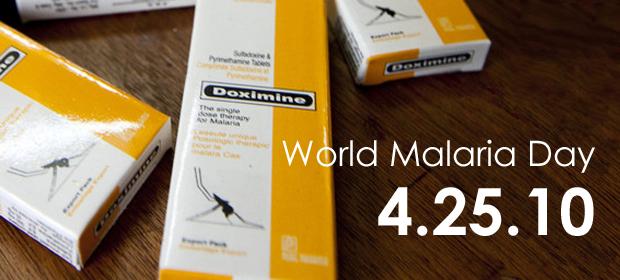Where We Work
See our interactive map


Malaria infects 500 million people and kills one million every year, with most of its victims children under five. In pregnant women, this disease increases the chance of miscarriage and causes over 10% of maternal deaths each year. While malaria affects people all over the world, 90% of malaria cases and deaths are in sub-Saharan Africa.
World Malaria Day encourages learning and collaboration to fight this disease. This year’s third annual World Malaria Day focuses on Roll Back Malaria, a program coordinating the action of hundreds of partner organizations—governments, nongovernmental organizations, the private sector, community-based organizations, research institutions, universities, and foundations—against malaria worldwide.
Malaria can be prevented and treated. Systematic use of insecticide-treated bednets and indoor residual spraying with insecticides can prevent mosquitoes from spreading the disease. Doses of sulfadoxine–pyrimethamine can remove the disease-causing parasite from pregnant women’s systems. Artemisinin-based combination therapies can successfully treat malaria victims, especially when administered early (within 24 hours of the onset of malaria fever).
IntraHealth leads malaria prevention and treatment programs to address the populations most vulnerable to the disease: pregnant women, young children, and people living with HIV. We’re currently focusing our malaria prevention and treatment work through programs in Kenya, Mali, Rwanda, and Senegal.
For more information on IntraHealth's malaria work, see:
For more information on the global fight against malaria see:
Statistics from the World Health Organization.



